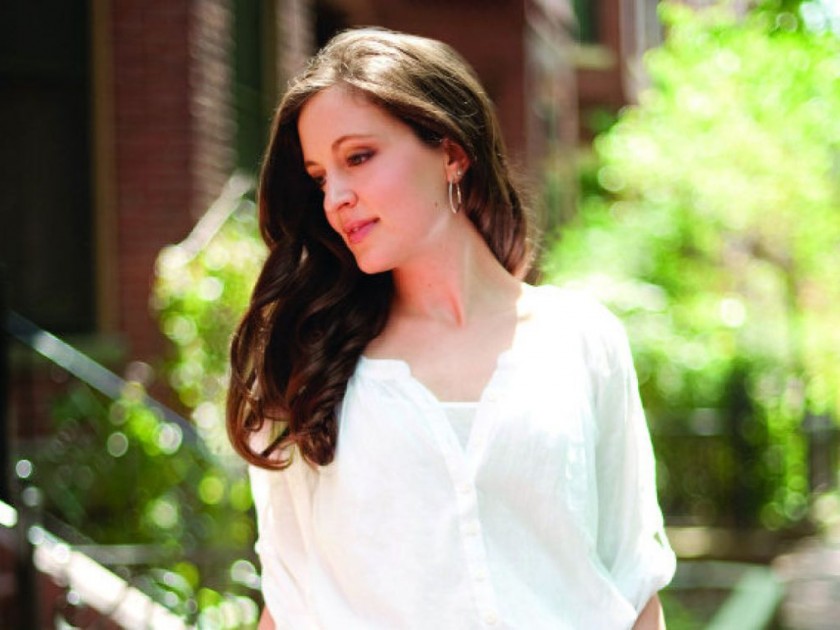
Credit: Alicia Savage
With The Innocents, first-time author Francesca Segal recreated a gem of the twentieth-century canon, Edith Wharton’s The Age of Innocence, applying the same themes of society, class, love, and family to modern London. Lawyer Adam Newman has always played by the rules and is preparing to marry his childhood sweetheart, Rachel Gilbert, when her beautiful, reckless cousin, Ellie Schneider, arrives from America. Adam must choose between following the path carved for him or following his heart.
Jaclyn Trop: Adam is confronted with a choice throughout the novel, but it seems as though the decision is ultimately made for him. What message are you imparting about marriage, relationships, and society?
Fransesca Segal: I would hate to be too prescriptive about interpretation – and I’ve been fascinated by the reactions I’ve had so far. Most readers feel very strongly about Adam’s choice, but they certainly don’t all agree with one another.
I don’t think I set out to impart a message, so much as to ask certain questions. What constitutes a good marriage? And a good life? Romantic lore suggests that one chooses a life partner as an individual, in a vacuum – that one person alone is the source of all happiness, regardless of context or circumstance. At the other end is absolute pragmatism, but between those two is a vast and complex landscape. One doesn’t, in reality, live in a vacuum, and everyone brings a constellation of factors into a marriage — their family, their culture; their interests, their financial circumstances, their ambitions, and it seems strange to suggest that none of those things contributes to one’s overall compatibility and happiness. Ellie versus Rachel, alone, in isolation? That is an altered playing field. But the lives that each woman offers – those are very different.
JT: Ellie tells Adam, ‘I swear, I knew you, I saw who you were, that very first time I met you’ when she was a child. It is clear why Adam is intrigued by Ellie, the melancholy model, but what attracts Ellie to Adam?
FS: I suspect it is a combination of factors, including, initially, an envy of anything that Rachel has. Ellie’s perception is that Rachel has everything and her life is perfect, and then into it comes another man to protect and take care of her. Initially I think that might contribute. And then they get to know one another, and both have their preconceptions of the other challenged.
JT: Who is the victim of the story? Does it change throughout?
FS: That’s such a fascinating question, as I’d never considered the story as having a victim. I suspect you can make a case for each of Rachel, Adam, and Ellie in turn, at various points of the narrative. I don’t think anyone gets out undamaged, but whether each ultimately ends up where they ought to be is subjective.
JT: Your novel is inspired by Edith Wharton’s novel, The Age of Innocence. Even your hero’s name, Adam Newman, is a loose inversion of Wharton’s Newland Archer. What is the significance of your title, The Innocents, and why did you choose to adapt Wharton’s book to modern Jewish London?
FS: I was briefly anxious about the title ‘The Innocents’ because it so clearly referred back to the Wharton novel, but over time it has really grown on me, as I think it describes beautifully the world that the novel depicts, both earnestly and with a twist of irony.
I chose to adapt the Wharton novel to contemporary north-west London because the central themes and ideas seemed so immediate and relevant. Wharton was enormously prescient about a number of things in that novel – reading about Julius Beaufort’s scams, for example, resembles the Madoff scandal in eerily accurate detail. I recognized the social climate of her novel – conformity versus freedom; independence at a cost of support and security. My message is slightly different from hers, however.
JT: Your father, Erich Segal, was an accomplished novelist and screenwriter. What inspires you to write, and what do you find to be the biggest challenge?
FS: I can’t remember ever wanting to do anything but write. My father was an enormous source of inspiration, both for the example that he set and for the passionate love of reading that he instilled in our whole family. He was a Classics professor, and those Romans knew a good narrative. I grew up in a household in which stories really mattered.